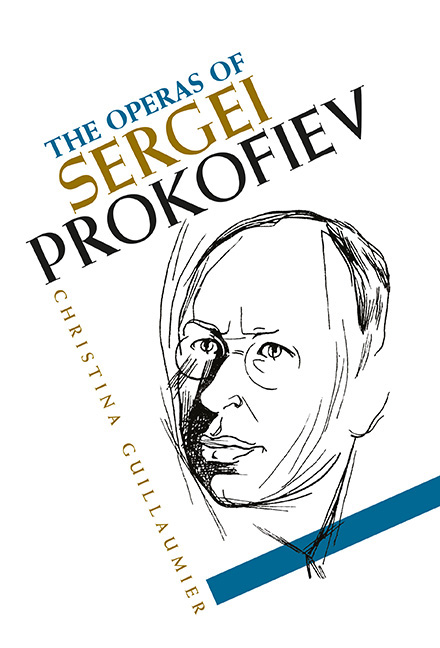Book contents
- Frontmatter
- Dedication
- Contents
- List of Illustrations
- Acknowledgements
- Note on transliteration, abbreviations and sources
- Introduction: Prokofiev and Opera
- 1 Early Operatic Experiments and Maddalena
- 2 Between Opera and Theatre: Radicalisation of Style in The Gambler
- 3 A Successful Enterprise: Love for Three Oranges
- 4 The Devil Within: Theatre and Spectacle in The Fiery Angel
- 5 Towards a Soviet Operatic Style: Semyon Kotko
- 6 Betrothal in a Monastery and the Retreat from Ideology
- 7 War and Peace: The Prokofievan Operatic Ideal?
- 8 Dramaturgical Re-evaluation in The Story of a Real Man
- Epilogue
- Synopses
- Bibliography
- Index
6 - Betrothal in a Monastery and the Retreat from Ideology
Published online by Cambridge University Press: 28 April 2020
- Frontmatter
- Dedication
- Contents
- List of Illustrations
- Acknowledgements
- Note on transliteration, abbreviations and sources
- Introduction: Prokofiev and Opera
- 1 Early Operatic Experiments and Maddalena
- 2 Between Opera and Theatre: Radicalisation of Style in The Gambler
- 3 A Successful Enterprise: Love for Three Oranges
- 4 The Devil Within: Theatre and Spectacle in The Fiery Angel
- 5 Towards a Soviet Operatic Style: Semyon Kotko
- 6 Betrothal in a Monastery and the Retreat from Ideology
- 7 War and Peace: The Prokofievan Operatic Ideal?
- 8 Dramaturgical Re-evaluation in The Story of a Real Man
- Epilogue
- Synopses
- Bibliography
- Index
Summary
Our investigation into Prokofiev's operatic output so far has demonstrated that, whether he meant it or not, each opera was in many ways a problem-solving exercise, almost a personal challenge. The puzzles explored in any one opera were at times musical, literary, political, or historical, or a combination of these. Within this framework, or perhaps as a response to it, Prokofiev developed his cornerstone approach, which focused on scenographic plasticity, theatrical rhythm, and declamation. These preferences pushed him continually to explore the Russian language as well as Russian literary and dramatic traditions. Richard Brinsley Sheridan's The Duenna was possibly an unlikely and unexpected choice, although its appeal to Prokofiev is obvious. For one thing, it was a comedy, with a decidedly old-fashioned set of moral codes embedded; for another, it was a cultural world that would have been largely alien to his Soviet audience, if not to him. In selecting this text he was taking the unusual step of working with a text that was not Russian (he had done that previously only with Gozzi, and only under Meyerhold's strong influence) and with a cultural world that was unfamiliar to him. This provided him with an unusual set of problems. It is highly likely that Sheridan’s text appealed to Prokofiev on a number of levels: first, it was humorous; second, it had a plot with worked-out dialogue that was almost ready to use; third, it was a ‘foreign’ text and thus fairly removed from everyday Soviet reality (though that in itself, of course, should have been cause for caution). The influence of the literary source on Prokofiev's musical structure was, in this case, likely to be more direct – features of the eighteenth-century ballad would understandably remain in the score, a decision that he made very consciously. In some parts of his score, Betrothal in a Monastery appears to be an opera-ballet, or certainly a hybrid combining aspects of both forms.
The Duenna, or, as Prokofiev would rename it, Betrothal in a Monastery, held fewer challenges for him than the texts he had previously set. It was a straightforward comedy of mistaken identities, which allowed him to work quite precisely within the genre of opera buffa, where comic incident is critical. The dialogues were humorous and slick; largely, they would not pose a problem in translation.
- Type
- Chapter
- Information
- The Operas of Sergei Prokofiev , pp. 149 - 170Publisher: Boydell & BrewerPrint publication year: 2020



